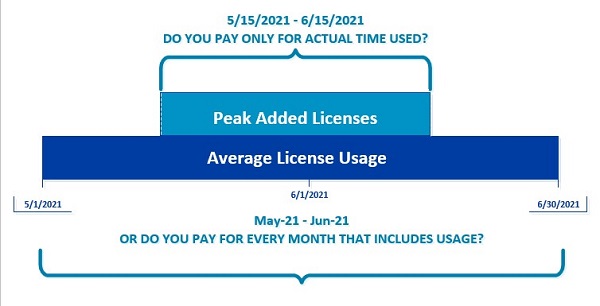As a consultant, I have reviewed a lot of UCaaS and CCaaS contracts from a technical and business perspective. Here are some of the things that I look for that could impact the overall cost of the services.
First, I look at the costs as laid out in the contract. I want to ensure that the cost structure in the contract matches the cost structure in the proposal. To do that, I must understand the cost structure in the contract. Sometimes it's straightforward, and sometimes it's not.
Here is a list of items to check:
- License fees by type of license
- Usage fees (local, domestic and international long distance)
- Fees for applications (such as Auto Attendant or IVR)
- Access/connectivity (if included as part of your cloud services)
- Implementation and set up fees
- Number porting fees
- Other one-time charges
The cost of these services is typically included in the contract and should correspond to the costs quoted in the proposal. Many times, contracts include costs for services that you may never use. Take the time to understand what does (and does not) apply to your environment.
Now it’s time to address something a little more complex: Taxes, fees, surcharges. These can total up to 30% of your entire bill, and usually, these charges are not called out specifically in the contract. They can include charges for things such as:
- 911/e911
- Compliance and Admin Cost Recovery Fee
- Direct Inward Dialing (DID) numbers
- Property taxes
- Federal cost recovery charge
- Federal cost recovery fee
- Regulatory cost recovery
- State and local surcharges
If you think I'm joking, consider the two images below, which show several examples of these charges:
Add-on charges like the above can significantly impact your overall cost, and it’s hard to determine in advance what those add-ons will be. When you ask your sales team, they frequently cannot provide a satisfactory answer. Typically sales reps don’t see the bills and don’t have access to the billing system, so they don't know what an end-user client will see on an actual bill. The best practice to determine the impact of these potential charges is to ask for an actual bill for another customer. They can remove the personally-identifying information. Viewing this bill allows you to see all of the charges that will be on your bill, and enables you to estimate how much they add to your bill. What is the actual percentage of the bill that includes these extra charges? Be sure to factor in these costs, or they can wreck your budget.
Another essential factor in controlling your cost structure relates to the billing start date. I have seen a lot of contracts where the billing date begins before you’re able to put the services to use. (See my previous
No Jitter article for more info and tips on avoiding this problem).
One great thing about cloud services is the flexibility to increase or decrease your licenses as your needs change. I have found that the providers are always happy to increase your licenses, but not so pleased to decrease them. If you anticipate a need to flex down, examine the contract language closely. Decreasing the amount of your license count almost always comes with limitations. Often, this issue is negotiable, so don’t overlook it.
Here’s one final “gotcha” regarding flexible licensing. In the example below, a client used additional licenses from May 15 to June 15—or one month. But how will they be billed? Many providers bill for an entire month, even if a client doesn’t use the license for the entirety. Many providers, in this case, would bill for two months even though the licenses were only in use for one month, the usage occurred in two separate months.
My final bit of advice is to be sure that you understand what's going on here and can calculate and budget for these costs. Hopefully, these tips will help you negotiate a better contract.
Melissa is writing on behalf of the SCTC, a premier professional organization for independent consultants. Our consultant members are leaders in the industry, able to provide best of breed professional services in a wide array of technologies. Every consultant member commits annually to a strict Code of Ethics, ensuring they work for the client benefit only and do not receive financial compensation from vendors and service providers.














